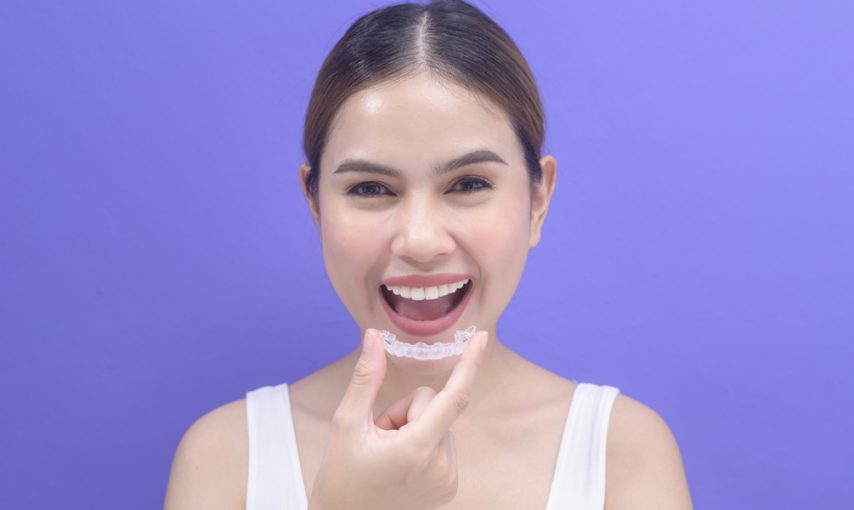What Is Invisalign?
It is a type of teeth aligner in orthodontic dentistry that straightens malpositioned teeth. Invisalign ®️ braces became an aesthetically-pleasing alternative to traditional metal braces for shifting teeth. Since metal brackets and wires are too conspicuous when you smile, Invisalign provides a better way. Adults have begun to acknowledge the benefits of orthodontic treatment thanks to Invisalign braces.
Invisalign features a transparent plastic-like material that applies controlled pressure over teeth to move them. As such, these aligners are also called clear or invisible braces.
What Are the Unique Features of Invisalign Braces?
Other than that, they are virtually invisible. Invisalign aligners provide many advantages to patients compared to traditional metal braces. Some of them are:
- Flexibility – Invisalign braces are removable. Therefore, your dentist in 46321 will not have to give you a list of foods you cannot eat during your treatment. Instead, you can remove your teeth aligners any time you want to eat.
- Ease of maintenance – Invisalign aligners require good oral hygiene to maintain their essence of invisibility. Brushing your teeth and rinsing your clear braces before wearing them well ensure they do not get stained. Such dental expectations are not too hard to maintain, compared to the difficulty of keeping clean teeth when you have metal braces.
- Fewer adjustments – invisible aligners do not have metal wires. Adjusting them is different from traditional braces. When you visit your dentist, you get a new tray of clear aligners to replace the initial ones. This will continue throughout your treatment, which may take about 32 clear braces.
Are Orthodontic Visits Essential Even with Invisalign?
Although your dentist does not need to keep adjusting your clear aligners to direct the movement of teeth, dental visits are still essential with Invisalign braces. The orthodontic visits will allow your dentist to evaluate the state of your oral cavity throughout your treatment. Besides, you need to change your aligners every six or so weeks. The good news is that you will not need as many orthodontic visits as necessary for traditional metal braces.
How Long Do Invisalign Results Typically Last?
If you are keen to wear your clear aligners properly throughout your treatment, your results can last a lifetime. However, your teeth need reinforcement to allow new bone tissue to regenerate, supporting your teeth in their new positions. At this point, your orthodontist will introduce you to something called a permanent Invisalign retainer.
How Can I Ensure My Results Will Last as Long as Possible?
Although your teeth will look straighter than before, be motivated to maintain your result for a long time. Part of the things you should do after orthodontic treatment are:
- Complete your orthodontic treatment – do not stop wearing your invisible aligners just because you notice an improvement in the alignment of your teeth. Follow through with your orthodontist’s treatments plan until the end for the best results.
- Wear your retainers – retainers are an important part of post-treatment care after orthodontics with Invisalign. They are types of teeth aligners that hold teeth in position to prevent them from shifting back to their original state. If you start your orthodontic treatment as an adult, you may need to wear retainers for the rest of your life after treatment. Teenagers and children have a better chance of abandoning them soon because their jaws are still developing.
- Maintain good oral hygiene – proper oral hygiene will benefit your dental health long term. Besides, the last thing you want is to harbor plaque and tartar in your mouth that causes infections like periodontitis that weakens jawbones and damages gums and teeth.
- Eat healthily while avoiding hard foods – chewing hard foods repeatedly places unnecessary pressure on your teeth and jaw. It will not benefit the alignment of your teeth.
- Wear a mouthguard – if you are involved in risky activities that may expose you to dental trauma, wear a mouthguard. It is a mouth protector that will protect your teeth from breaking and your jawbone from incurring significant damage.
- Seek treatment for teeth grinding – a condition where you gnash your teeth against each other at night when you sleep. Other than wearing down your enamels, teeth grinding can cause a relapse in your orthodontic results.


